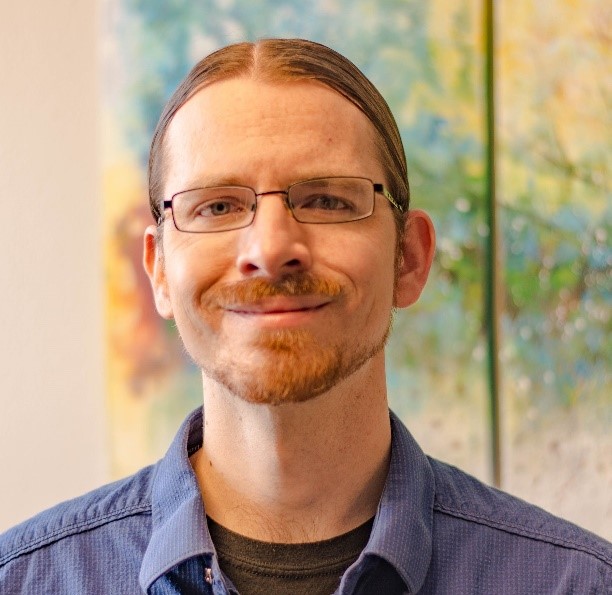“What does this inkblot look like to you?”
“You need to get in touch with your inner child.”
“But how does that make you feel?”
Cliches and caricatures. It’s what most of us who have never seen a therapist think therapy is like. And, to be honest, if they were accurate, I’d never have wanted to get counseling – or, much less, to become a counselor.
When I meet for the first time with my clients who are new to therapy, I always give them a quick orientation to how this whole thing works, something to push back on the counseling stereotypes we see in movies and the Sunday funnies and help them feel more relaxed because they know what to expect. That’s what I’d like to do in this blog post.
How Do I Know When to See a Therapist?
When you’re not getting to where you want to go. When you feel stuck. When you don’t know what to do, but something has to change. Phrase it however you want – the basic idea is, “When you need some help.” And that help could be about anything from “I don’t want to be depressed anymore because of what happened to me” to “I want to be a better father/sister/friend.”
Note what the answer isn’t: When you’re hearing voices. When you’re hitting rock bottom in your addiction. When you have one of the really bad diagnoses. Nope – way too narrow an answer! Counseling or therapy (two words for the same thing) is for anybody, with any background, who has anything of a mental, emotional, or relational nature they want help changing. That’s all!
American culture tells us (especially men) that it’s weakness to ask for help and strength to figure it out on our own. This is not only directly contrary to what we Christians find all over our Bibles, it also just doesn’t work. Worst case scenario, this belief puts us on a path to destroy our lives. Best case scenario, we miss out on the joys of interdependence and the adventure of personal growth that’s available to us.
How Do I Find a Good Therapist?
Word of mouth is a great starting point. If you have friends who have mentioned benefiting from counseling, ask them for a recommendation! My favorite directory for counselors is the Therapist Finder search engine on PsychologyToday.com. Church leaders and WGA staff may also be able to give you referrals (contact info) to counselors they trust, especially if having a counselor who’s a Christian is important to you.
Should a Christian always work with a Christian counselor? Not necessarily, but it can definitely be helpful to have a therapist with the same spirituality as you. A good counselor, though, never pushes religious, spiritual, or political views on a client, so unless the issue you’re working on is specifically tied in with the details of your faith, a non-Christian counselor can be just as helpful as a non-Christian baker or doctor or plumber. I personally have benefited from working with counselors who are Christians and counselors who aren’t – I see life through the lens of Christ, so I don’t need my therapist to do so for me.
What about other identities we carry – gender, sexual orientation, age, race? If it’s a big deal to you that your therapist match you on these, then it’s a big deal. Sometimes it’s actually important that these be different instead – for example, if you’re a man who’s been deeply hurt by your father, maybe working with a female counselor would be more helpful. On the other hand, working with a male counselor (who might remind you of your dad) creates an opportunity for a powerfully healing experience of being shown compassion by someone you might subconsciously expect to bring only hurt.
I’ll be honest with you – there are some bad therapists out there, and I hope you never end up working with one. (Here’s a list of red flags to look out for to make sure!) But with the exception of the small minority of counselors who are burnt out or unethical, skill level actually matters less than how good of a fit a given therapist is for you specifically.
What Should I Expect Therapy to Be Like?
There’s about a thousand different answers to this, and it all depends on two things: What kind of counselor are you working with, and what do you want out of therapy?
There are lots of different kinds of mental health professionals out there. Among clinical professionals, there are Licensed Professional Counselors (LPC), the most general in scope; Clinical Social Workers (LCSW), who focus on connecting people with resources; Marriage and Family Therapists (LMFT), who focus on couples and family issues; and Clinical Psychologists (PsyD/PhD), who are specially trained in psychological testing. There are also counselors who focus on addictions (LAC/CAC) and/or sexual addictions (CSAT). Most Psychiatrists (who are medical doctors) focus on medication management rather than counseling.
Non-clinical professionals (who do not always have psychological training) might also be helpful depending on your needs. Pastoral Counselors, Christian Counselors, and Spiritual Directors may be especially helpful if you want to grow in your relationship with God or applying His way to your current struggles in life. It’s important to note that “Christian Counseling” is not the same as “Biblical Counseling,” which is often strongly anti-psychology.
A given counselor might employ any (or several) of a hundred different therapeutic frameworks. Some emphasize changing your thinking patterns and give behavioral homework to do during the week; others focus on mindful acceptance and experiencing feelings instead of avoiding them; still others identify unconscious needs and drives to explain why we do what we do. EMDR – a type of strange-sounding but thoroughly evidence-based therapy – can be especially powerful for healing from trauma.
But what about what you need and want from therapy? Bottom line: Ask your potential counselors for a brief (often free) consultation to discuss your goals and interview the therapist about his or her approach to therapy. There’s no substitute for asking lots of questions and giving lots of feedback to help your therapist do the best possible job of helping you get from where you are to where you’re going. Pray about whether a given counselor is the right fit for you, and if the answer is no, that’s okay! Keep searching.
Think of counselors as navigators for the journey of healing and growth you’re on, and remember: you’re in the driver’s seat! May God bless you as you continue working toward wholeness, peace, and joy.

Adam Skinner
Adam is a Licensed Professional Counselor Candidate on staff with Subtle Strengths Counseling in Colorado Springs. There, he gets to help men, women, and couples find healing and restoration in their lives and relationships. His areas of focus include trauma, pornography addiction, depression, and codependency. He is currently offering both in-person and secure online counseling, available to all Colorado residents. He graduated with a master’s degree in Clinical Mental Health Counseling from Denver Seminary in Littleton, Colorado.
Over his 13 years in Colorado, Adam has been a performance poet, a case manager for people with HIV/AIDS, a preacher at Scum of the Earth Church, and a WGA group co-leader with Scott Kingry. When not spending time with his wife and daughter, he can be found getting lost in the mountains with a hammock and a good book.
Make a Difference in Someone's Life
If you enjoy reading WGA’s blogs and would like to show your support, please consider making a donation. Where Grace Abounds is a 501(c)3 non-profit organization. The majority of services, including support groups and discipleship counseling, are provided free of charge. Your financial gifts help to cover the costs associated with offering a free program to those who seek WGA’s services.

